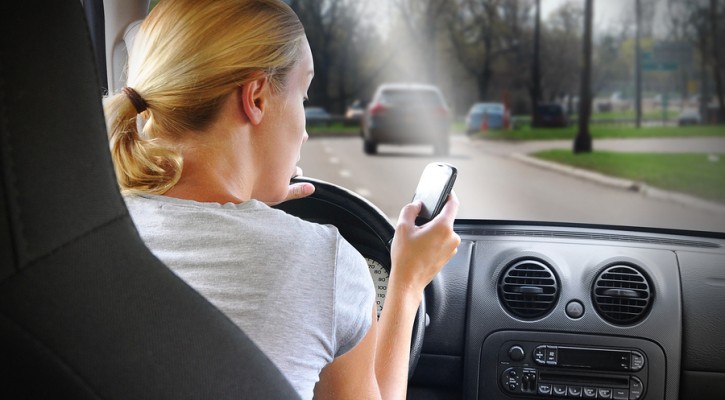
Nearly Half of Teens Admit to Texting While Driving
December 1, 2008
While recent studies indicate that teens agree that texting while driving is dangerously distracting, a significant number still continue to do so.
In a 2007 study by SADD (Students Against Destructive Decisions) and Liberty Mutual Insurance Group, 37% of teens rated text messaging as “extremely” or “very” distracting. A statewide study by AAA Colorado showed teens feel even more strongly about the risk:
- 97% think text messaging while driving is dangerous.
- 91% think there should be legal limits on cell phone use, including text messaging, while driving (these laws do exist in many states; some target only teens, while others extend to all drivers).
- 74% admitted not knowing the law regarding cell phone use and driving in Colorado (meaning education and enforcement should be a priority).
- 73% said strict penalties, such as losing their licenses, would make them less likely to text while driving.
But in a separate AAA study, 46% of teens admitted to texting while driving. And in the Colorado study, the numbers were even higher – 51% confessed to it, and 38% admitted taking their eyes off the road while text messaging.
Many states have or are considering laws prohibiting teens from texting while driving. California’s law went into effect on July 1. California Highway Patrol spokesman Tom Marshall said that officers have to spot another offense before stopping teen drivers who are text-messaging because the law classifies texting and driving by teens as a secondary offense.
After the Colorado survey, state troopers planned to increase education efforts and continue cracking down on drivers who break the existing law, which makes it illegal for teens with an instruction permit to use a cell phone, whether talking or texting, while driving.
Whether the law supports them or not, parents need to take a stand with their teens against text messaging. Teens know the danger exists, but the feeling of invincibility and the desire to maintain close contact with friends that are typical of this age allows them to ignore it. Many teens won’t comply with a directive against text messaging while driving unless they know there are consequences. In the SADD/Liberty Mutual study, 52% of teens who say their parents are unlikely to follow through on punishment if they drive and text will continue to do so, compared to only 36% of teens who believe their parents would penalize them.
To educate your teen about the risk, ask your teen to tell you how texting and other distractions would affect your driving as you drive with the teen as a passenger. Would you have missed that traffic light? Rear-ended a stopped school bus? Veered over the center line? Share the following tips (be sure to follow them yourself to set a good example):
- Turn off your cell phone while driving. Let voicemail capture your voice and text messages.
- Pull off the road safely and stop if you need to send a text.
- Recognize that wanting to be available at all times can be a habit that will negatively affect your driving at best and could cause a terrible crash at worse. Let friends and family know that you won’t be responding to text messages while driving.
- If you just can’t resist texting and driving, put your phone somewhere you can’t reach it, like the trunk of your car.
Parents often want their children to be available by phone at all times, but you are putting your child at great risk by expecting an instant response to your “Wher R U?” text. Establish regular check-in times when your teen won’t be driving, and resist the urge to text at other times.
Review your teen’s cell phone bill with them regularly to see if they are texting at times when they are likely to be driving. Specify the penalty for violating the rule ahead of time, and be sure to apply the punishment consistently if your teen breaks the rule. Teens should sign a Parent Teen Driving contract in which they agree to focus all of their attention on driving during each and every trip.
Whether your state has a graduated driver’s licensing law or not, use a Driving Log to keep track of the hours you spend on your teen’s driver training. Make a note in the log to review common driver distractions, including texting, during each lesson.
If you’re wondering whether you could simply disable the cell phone while your teen is driving, thereby reducing the need for your policing efforts, wonder no more – cell phone jammers are illegal. Though the law, enacted in 1934, was mainly written to protect radio and television broadcasters from the pirating of their airwaves, the penalties for having the technology are severe – a fine up to $11,000 and a jail term of up to one year.
